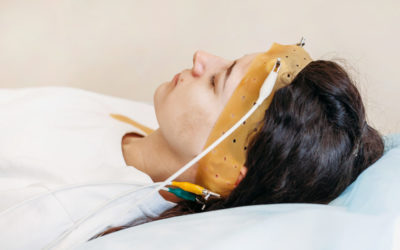Quick Hits
Daily brief research updates from the cognitive sciences

Get into the groove… or so sang Madonna with her hit single in 1985. Little did she know at the time but getting into the groove certainly does seem to be beneficial for you – not to prove your love as she demanded, but in improving cognitive, brain, performance.
Really, yes.
Researchers at the University of Tsukuba in Japan have investigated the impact of groovy music, music related to rhythm and dance, and stimulating the urge to move, on cognitive performance.
To do this these researchers gave cognitive tasks and conducted brain scans using near-infrared spectroscopy (fNIRS) to measure participants before and after playing groovy music.
They found that groovy music improved cognitive performance scores, and this was related to increased function in an area of the brain called the left dorsolateral prefrontal cortex (l-DLPFC). Many prefrontal regions are associated with higher cognitive functions. However, there is a caveat, and that is this effect could only be seen in those participants who said they enjoyed the music only.
So, this raises the question of whether it is groovy music that stimulated this process or simply music that you enjoy – other research has shown the positive benefits of music on just about everything.
So, for you groovers, music that makes you want to move your body, to groove, is likely good for your brain performance. If you don’t like the groove, you can certainly try with any music you like. It will at least elevate your mood and that in itself is no bad thing.

Andy Habermacher
Andy is author of leading brains Review, Neuroleadership, and multiple other books. He has been intensively involved in writing and research into neuroleadership and is considered one of Europe’s leading experts. He is also a well-known public speaker speaking on the brain and human behaviour.
Andy is also a masters athlete (middle distance running) and competes regularly at international competitions (and holds a few national records in his age category).
Reference
Takemune Fukuie, Kazuya Suwabe, Satoshi Kawase, Takeshi Shimizu, Genta Ochi, Ryuta Kuwamizu, Yosuke Sakairi, Hideaki Soya.
Groove rhythm stimulates prefrontal cortex function in groove enjoyers.
Scientific Reports, 2022; 12 (1)
DOI: 10.1038/s41598-022-11324-3
More Quick Hits
Disagreements Improve Team Perception
We might assume that agreement would be high in high-performing teams – this study shows the opposite…
Brain Cells Adapt to Help You Stay Awake
Falling asleep is a funny thing – you don’t need to think about it when it happens but can cause many people who can’t incredibly frustration…
Dad Brain is Real
We know that mothers go through multiple physical and psychological changes after birth (and before) including change in brain structures but what about fresh fathers?
Mask-Wearing Makes You Better Behaved
This is a fascinating study that shows that wearing masks changes behaviour in subtle but important ways…
Coffee Can Help You Live Longer
Yes, that is good news for you (us) coffee drinkers. This supports plenty of more recent studies which have shown the health benefits of coffee…
Big Kids Die Earlier!
Before you panic – the conclusion in the title is based on research into mice not human beings – but there could potentially be some important insights for us human beings as well.






